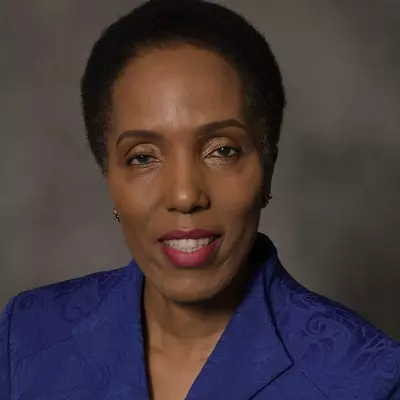
The global digital governance space is now more vibrant than ever. At the UN level, various
agencies and organisations are exploring the policy implications of digital technologies in areas
such as human rights, future of work, and sustainable development. Dedicated groups are
discussing norms for responsible state behaviour in cyberspace and are working on a convention
on cybercrime. UN member states are expected to agree on a Global Digital Compact (GDC) in
2024 and start work towards the 20-year review of the World Summit on the Information Society
(WSIS) in 2025. And a high-level advisory group set up by the Secretary-General is developing
recommendations for the international governance of AI.
Geneva plays an important role within this dynamic governance landscape. Over the centuries, the
city has been a meeting place between technology and humanity, and it is now home to more than
50% of the international processes where issues related to the policy implications of digital
technologies are debated and negotiated.
Against this backdrop, the ‘Global digital governance: Geneva’s perspectives and role’ dialogue
aims to provide a space for Geneva-based diplomats to reflect critically on (a) how global
governance and cooperation mechanisms can provide concrete, effective and human-centric
solutions to key digital challenges, and (b) the role – existing and potential – of International
Geneva in advancing such solutions.
To achieve this goal, the dialogue will be structured as a series of focused, interactive debates –
both in ‘plenary’ and in small groups – guided by Diplo experts. These sessions have been
designed to encourage maximum participation from diplomats with various levels of experience,
from large and smaller Missions alike.
The expert-guided dialogue is dedicated to Geneva-based diplomats with various levels of
experience in digital governance.
In keeping with the goal of ensuring an equitable representation and supporting smaller missions,
half of the available seats will be allocated to delegates of least developed countries, landlocked
developing countries, and small island developing states (as defined by the UN OHRLLS). Seats will
be allocated on a first-come, first-served basis up to a maximum of 40 delegates.
Due to limited availability of seats, participation may be restricted to one representative per
mission/delegation.
The dialogue is organised by Diplo with the support of the UK Mission to the UN, WTO and other International Organisations in Geneva.
***
Key takeaways
Below is an overview of some key takeaways resulting from the discussions. They highlight main messages that emerged during the debates. Some of these takeaways are framed as questions, reflecting the need for further discussions.
Digital governance architecture
- There is fragmentation in how we approach digital issues; this calls for more
collaboration and coordination at national, regional, and global levels. - In digital governance, coordination gaps tend to be deeper than actual governance gaps.
- Need to be mindful of the challenges of developing countries, in particular, as they struggle with the wide range of processes and initiatives they are supposed to follow/engage in.
- Look more carefully at how the GDC, WSIS+20, Agenda 2030 fit together.
- Build the future by considering the past. Documents going back to WSIS are still relevant; see what changed meanwhile, but don’t reinvent the wheel.
- Awareness of existing mechanisms, roles, etc. is key.
| Spotlight: Connecting the dots On the IGF – Funding challenges. – Concern about not many developing countries’ governments in attendance. How to change this? – How to better feed IGF outputs into UN processes? On linking Geneva and New York – The dynamics of discussions in Geneva are different from those in New York. – How to constructively contribute from Geneva to support New York-based discussions on digital governance? |
Digital infrastructure and access
- Often missing in debates: How do we protect submarine cables and ensure their resilience? Can this be covered by the GDC?
- Do we have / should we have regional governance approaches for maintaining the resilience of infrastructure (e.g. avoid disruptions in one country affecting a neighbouring one)?
- Big tech companies own a disproportionate amount of infrastructure but want none of the responsibilities that come with it. How do we tackle this?
- LDCs need concrete, practical answers and solutions to their practical challenges (electricity, internet infrastructure, etc.) before they can join any of the policy conversations. Where could they find the resources?
- Programmes/initiatives by I(G)Os do not always respond to the actual needs and realities of LDCs and developing countries. How to address this?
Data and tech for sustainable development (focus on data and AI)
- Issues to pay more attention to:
- How do public policies affect the ability to access and use data (including for policy-making and developing solutions to societal problems)?
- Encourage countries to pool their resources together to create LLMs in their respective languages.
- GDC considerations:
Trust and safety in the digital space
- Having UN / diplomatic norms tackling digital security issues is not enough; implementation across the broad is needed.
- Is content governance falling between the cracks? The UNGA First Committee is discussing cybersecurity and cybercrime; the GDC is having a broader scope in terms of security (beyond peace and security), but not really pinpointed what is to be discussed.
Data governance
- Between 20023 and now, we have seen a shift of narratives from ‘information and knowledge’ to ‘data’ in governance discussions. We should reflect carefully on what this means and consider paying more attention to issues related to knowledge (beyond data).
- There seems to be an overlap of issues being discussed in different fora (e.g. trade negotiations, CSTD, IGF…).
- Insufficient representation from developing regions.
- Concern: Fragmented regulatory landscape of data regimes and extraterritorial application of certain regulations of data access.
- Need to acknowledge the disadvantaged position of Global South countries when it comes to data collection, processing, and use capabilities.
- Need to balance data flows and data localisation.
- Do we need a (UN) space to discuss data governance in a holistic way, which takes into account different policy angles? Is it feasible?
Human rights
- We need to assess whether current instruments / regulatory frameworks for human rights (HR) need any fine-tuning to ensure adequate protection of HR in the context of tech advancements (e.g. AI, neurotech).
- It might be only a matter of ensuring we interpret and implement the frameworks correctly. Or that we strengthen enforcement.
- Having regulations in place is not in itself sufficient. Enforcement, implementation, and awareness are key.
- Do public authorities have the resources and the expertise to effectively apply regulations?
- Are end-users aware of the interplay between tech and HR?
- The rights of vulnerable groups need to be more at the forefront (including in the context of the future of work).
- Shall we discuss a 4th generation of human rights (e.g. a right to be humanly imperfect in the era of tech-driven optimisation)?
AI governance
- There is a need for balance in addressing immediate, medium, and long-term risks associated with AI.
- AI governance must be holistic. How?
- We need some coordination to set global standards or some form of global governance. But how and who?
- Potentially tangible outcome of GDC: UN to enhance coordination. There will always be turf wars, but maybe we can envision an architecture that enables coordination or gap-filling.
- AI governance vs AI cooperation? Do we need one more than the other?
- Need to unpack narratives and read between the lines.









